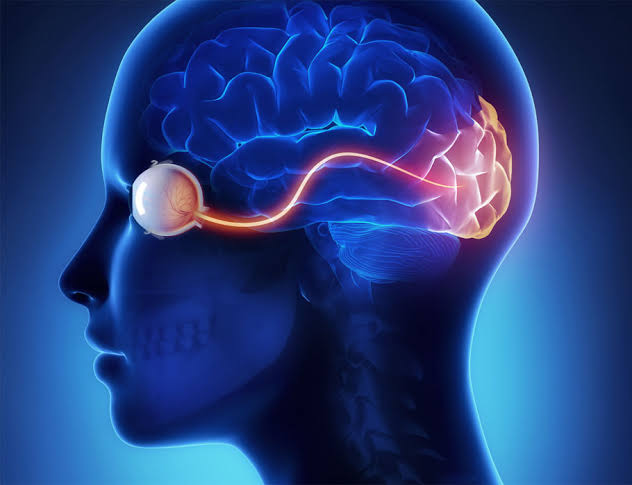Myasthenia Gravis, commonly referred to as MG, is a complex autoimmune disorder that significantly impacts the neuromuscular junction. This condition occurs due to the body's immune system attacking itself, producing autoantibodies against the nicotinic acetylcholine postsynaptic receptors located at the junction of skeletal muscles. Though predominantly treatable, MG can lead to substantial morbidity and, in severe cases, mortality. Timely diagnosis and appropriate treatment of Myasthenia Gravis are crucial in preventing complications associated with this condition.
Key Symptoms of Myasthenia Gravis:
The primary manifestations of Myasthenia Gravis include skeletal muscle weakness and rapid muscle fatigue. These symptoms can range from mild to severe, varying across individuals. The spectrum of symptoms extends from ocular manifestations, primarily involving the eyes and facial muscles, to more severe forms that affect the limbs, bulbar muscles responsible for speech and swallowing, and even the respiratory muscles.
Dietary Considerations for MG:
Individuals with MG often encounter difficulties in chewing and swallowing food, which necessitates dietary adjustments. For better ease in consumption, opting for a diet with semi-solid or liquid consistency is advisable. Such dietary choices not only aid in ease of ingestion but also ensure nutritional intake. A diet rich in nutrients, including essential vitamins and minerals, is particularly beneficial for maintaining overall health and supporting the weakened muscular function in MG patients.
Diagnosis:
Diagnosing myasthenia gravis involves a thorough process that includes physical examinations and an extensive review of the patient's medical history. Neurological examinations form a crucial part of the diagnostic procedure, encompassing assessments such as evaluating muscle toning, ensuring adequate eye movement, and conducting various other tests. These evaluations aim to detect specific indicators and symptoms associated with myasthenia gravis. The comprehensive approach to diagnosis involves a series of neurological tests to ascertain muscle strength, eye coordination, and other relevant factors contributing to the identification of this condition.
Diet and Lifestyle Recommendations
In Myasthenia Gravis (MG), maintaining a conducive diet and lifestyle plays a crucial role in managing symptoms and promoting overall well-being. Some essential guidelines for individuals coping with MG include:
Nutrient-Rich Diet:
Incorporate abundant vegetables and fruits into your meals to ensure a well-rounded nutritional intake.
Hydration:
Stay adequately hydrated by consuming plenty of water throughout the day.
Avoid Processed Foods:
Steer clear of junk and processed foods, prioritizing whole and natural food choices.
Mind-Body Practices:
Engage in yoga and meditation to foster mental relaxation, reducing stress and anxiety levels, which can help manage MG symptoms.
Symptoms associated with MG may include changes in facial expression, blurred or double vision, difficulty swallowing, shortness of breath, dysarthria (impaired speech), and weakness in the arms, hands, fingers, neck, and legs. Being attentive to these symptoms and seeking appropriate medical advice when experiencing them is crucial for effective MG management.
A diet rich in nutrients and hydration, combined with mind-body practices, contributes significantly to enhancing the quality of life for individuals navigating MG. These lifestyle modifications can serve as supportive measures in managing MG symptoms, aiming to mitigate their impact and improve daily functioning.
Understanding Myasthenia Gravis in Ayurveda:
In the realm of Ayurveda, Myasthenia Gravis (MG) is perceived as a condition rooted in imbalances of the Vata and Kapha doshas, which impact the muscle sites within the body. While Ayurveda doesn't explicitly delineate MG, it underscores the critical significance of maintaining a balanced Agni, the digestive fire, to thwart the accumulation of toxins or ama within the body. According to Ayurvedic doctrines, the human body is comprised of seven fundamental tissues, known as saptha dhatus, and treating MG aligns with the rejuvenation and harmonization of these tissues. The therapeutic approach revolves around using Panchakarma therapies, a set of detoxification procedures, complemented by internal medications aimed at restoring Agni and rectifying the underlying imbalances.
Ayurvedic Herbs for MG:
Ayurveda harnesses the potential of various single herbs recognized for their therapeutic properties in managing MG symptoms. These herbs, including Bala (Sida cordifolia), Guduchi (Tinospora cordifolia), Mulethi (Glycyrrhiza glabra), Ashwagandha (Withania somnifera), and Brahmi (Bacopa monnieri), are employed in Ayurvedic practices. While Ayurveda doesn't claim a definitive cure for MG, these herbs are believed to possess properties that contribute to overall health enhancement and potentially offer relief from symptoms associated with Myasthenia Gravis.
The use of these Ayurvedic herbs is rooted in their diverse therapeutic effects. Bala, known for its rejuvenating properties, is often utilized to enhance muscle strength and vitality. Guduchi, a potent immunomodulatory herb, may aid in strengthening the immune system and reducing inflammation. Mulethi, recognized for its anti-inflammatory and antioxidant properties, could potentially alleviate symptoms related to Myasthenia Gravis. Ashwagandha, revered for its adaptogenic qualities, might help reducing stress and fatigue. Brahmi, celebrated for its neuroprotective properties, may aid in improving cognitive functions and nerve health.
Ayurveda's approach to Myasthenia Gravis (MG) revolves around holistic well-being rather than just symptomatic relief. These herbs, incorporated into Ayurvedic treatments, are believed to work synergistically, aiming not only to alleviate immediate symptoms but also to strengthen overall health and vitality. However, it's essential to note that while Ayurveda offers a holistic perspective and potential support, it's crucial for individuals with MG to consult with healthcare professionals adept in both Ayurvedic and conventional medicine for a comprehensive and tailored approach to managing their condition.
Managing Myasthenia Gravis Holistically:
Managing MG is multifaceted, and a comprehensive approach is essential. While Ayurveda doesn't offer a complete cure for MG, it provides holistic principles and treatments aimed at improving the quality of life for individuals affected by MG. Integrating Ayurvedic treatments with conventional approaches may offer valuable support and relief for MG patients, promoting overall health and well-being.
In conclusion, Myasthenia Gravis, being a challenging condition, requires a holistic and multi-dimensional approach. Although there is no definitive cure for MG, the holistic principles of Ayurveda offer a complementary avenue for managing symptoms, improving overall health, and enhancing the quality of life for individuals living with this condition. Consulting with healthcare providers trained in both Ayurvedic and conventional medicine can provide comprehensive care and support tailored to the individual needs of MG patients.


























